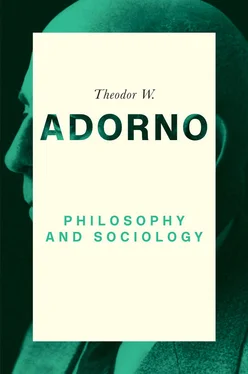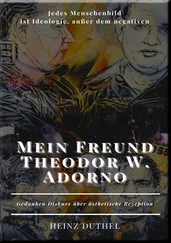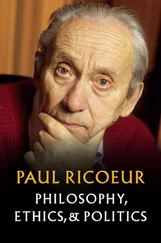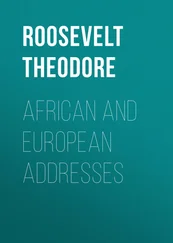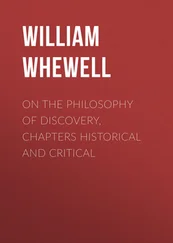22 22 The concept of ‘ideology’ can be traced back to Antoine Louis Claude Destutt de Tracy (1754–1836). He used the term in his work Eléments d’idéologie (Paris, 1801–15) to describe the exact theory of ideas (in the sense of mental ‘representations’). This Enlightenment theory was expressly taken over by the philosophical ‘School of the Ideologists’ and exerted considerable influence in the French educational system until the doctrine was attacked and discredited by Napoleon Bonaparte. In a passage from the Soziologische Exkurse we read that:Although his dictatorship was itself linked in so many respects to the bourgeois emancipation, Napoleon, in a passage which Pareto cites, already raised the accusation of subversion against the ideologues, even if he did so in a more subtle manner, an accusation which ever since has attached itself like a shadow to the social analysis of consciousness. In this reproach he emphasized the irrational moments – in a language with Rousseauean colorations – to which a continual appeal was made subsequently, against the so-called intellectualism of the critique of ideology … Napoleon’s denunciation charges: ‘It is to the doctrine of the ideologues – to this diffuse metaphysics, which in a contrived manner seeks to find the primary causes and on this foundation would erect the legislation of the peoples, instead of adapting the laws to a knowledge of the human heart and to the lessons of history – to which one must attribute all the misfortunes which have befallen our beautiful France. Their errors had to – and indeed this was the case – bring about the regime of the men of terror. Indeed, who was it who proclaimed the principle of insurrection as a duty? Who misled the people by elevating them to a sovereignty which they were incapable of exercising? Who has destroyed the sanctity of the laws and all respect for them, by no longer deriving them from the sacred principles of justice, the essence of things, and the civil order of rights, but exclusively from the arbitrary volition of the people’s representatives, composed of men without knowledge of the civil, criminal, administrative, political, and military law? If one is called upon to renew a state, then one must follow principles which are in constant opposition to each other [des principes constamment opposés]. History displays the history of the human heart; it is in history that one must seek to gain knowledge of the advantages and the evils of the various kinds of legislation.’ … The later usage too, which employs the expression ‘unworldly ideologues’ against allegedly abstract utopians in the name of ‘Realpolitik,’ is discernible in Napoleon’s pronouncements. But he failed to realize that the ideologues’ analysis of consciousness was by no means so irreconcilable with the interests of the rulers. Already then a technical manipulative moment was associated with it. (Institut für Sozialforschung, Soziologische Exkurse, pp. 166f.; Aspects of Sociology, pp. 187–8)
23 23 The other ‘force’ was the rationalism defended by Gottfried Wilhelm Leibniz (1646–1716) and Christian Wolff (1679–1754) as an alternative to British empiricism. Kant sought to overcome both of these schools with his philosophy of transcendental idealism, which claimed that knowledge depended upon both sensible experience and the ‘concepts of the understanding’. For Kant, the opposition between rationalism and empiricism was equivalent to that between dogmatism and scepticism; he was concerned principally with the question concerning the possibility of metaphysics as a science, an idea which dogmatism simply affirmed and empiricism denied. For Kant, genuine metaphysical knowledge is simply knowledge that holds independently of experience and comes about through the formation of pure synthetic a priori judgements. In his view, ‘the dogmatists’ were never able to explain how the formation of such judgements is even possible. See NaS IV.4, p. 89; Kant’s Critique of Pure Reason, Livingstone, p. 56.
24 24 The description of empiricist philosophy and psychology as the ‘analysis of consciousness’ can already be found in Hegel:Psychology, like logic, is one of those sciences which in recent times have still derived least profit from the more general cultivation of the mind and the deeper concept of reason. It is still in an extremely poor condition. The turn effected by the Kantian philosophy has indeed attached greater importance to it, even claiming that it should (and that in its empirical condition) constitute the foundation of metaphysics, a science which is to consist of nothing but the empirical apprehension and analysis of the facts of human consciousness, merely as facts, just as they are given. (Georg Wilhelm Friedrich Hegel, Werke, ed. Eva Moldenhauer and Karl Michael Markus, Frankfurt, 1969–, vol. 10: Enzyklopädie der philosophischen Wissenschaften im Grundrisse, Dritter Teil: Philosophie des Geistes, p. 238; Philosophy of Mind, trans. William Wallace and A. V. Miller, rev. Michael Inwood, Oxford, 2010, §444, p. 171)See also aphorism 39, ‘Ego is Id’, from Minima Moralia (GS 4, pp. 70–2; Minima Moralia, trans. Edmund Jephcott, London, 1974, pp. 63–4).
25 25 In his lecture ‘The Virginity Taboo’, delivered in 1917, Sigmund Freud (1856–1939) had spoken for the first time of ‘the narcissism of small differences’ (S. Freud, Gesammelte Werke, London, 1940–, vol. XII, p. 169; Pelican Freud Library, vol. 7, Harmondsworth, 1977, p. 272.) In his late text Civilization and its Discontents of 1939, Freud returned to this form of narcissism:I once discussed the phenomenon that it is precisely communities with adjoining territories, and related to each other in other ways as well, who are engaged in constant feuds and in ridiculing each other – like the Spaniards and Portuguese, for instance, the North Germans and South Germans, the English and Scotch, and so on. I gave this phenomenon the name of ‘the narcissism of small differences’, a name which does not do much to explain it. We can now see that it is a convenient and relatively harmless satisfaction of the inclination to aggression, by means of which cohesion between the members of the community is made easier. In this respect the Jewish people, scattered everywhere, have rendered most useful services to the civilizations of the countries that have been their hosts; but unfortunately all the massacres of the Jews in the Middle Ages did not suffice to make that period more peaceful and secure for their Christian fellows. (S. Freud, Gesammelte Werke, vol. XIV, pp. 473f.; Standard Edition of the Complete Psychological Works of Sigmund Freud, vol. XXI, London, 2001, p. 114)
26 26 In §46 of his Prolegomena, Kant says that ‘in all substances the subject proper, that which remains after the accidents (as predicates) are abstracted, hence the substantial itself, remains unknown’; and a little further on he continues:Now we appear to have this substance in the consciousness of ourselves (in the thinking subject), and indeed in an immediate intuition; for all the predicates of an internal sense refer to the ego, as a subject, and I cannot conceive myself as the predicate of any other subject. Hence completeness in the reference of the given concepts as predicates to a subject – not merely an idea, but an object – that is, the absolute subject itself, seems to be given in experience. But this expectation is disappointed. For the ego is not a concept, but only the indication of the object of the internal sense, so far as we cognize it by no further predicate. Consequently, it cannot be itself a predicate of any other thing; but just as little can it be a determinate concept of an absolute subject, but is, as in all other cases, only the reference of the internal phenomena to their unknown subject. (Kant, Werke in sechs Bänden, vol. III: Schriften zur Logik und Metaphysik, pp. 204–5; Prolegomena to any Future Metaphysics that Will Be Able to Come Forward as Science, trans. Paul Carus, rev. James W. Ellington, Indianapolis, 1977, p. 75)
Читать дальше
